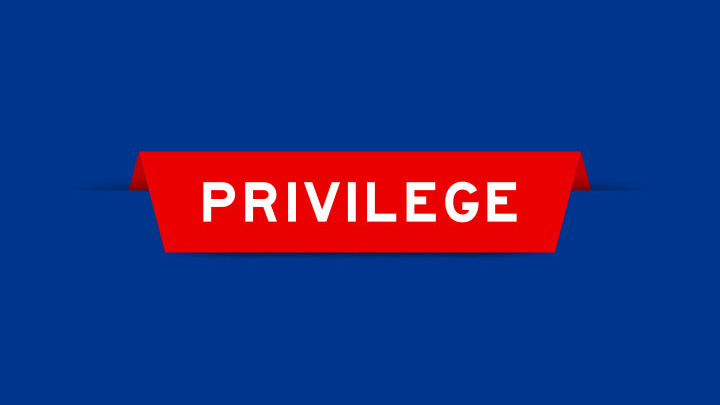Greek Competition Act updated- Major amendments and changes introduced.
Οn January 20, 2022 the Greek Parliament passed a Bill, (Law 4886/2022 Gov. Gazette A’ , No. 12/24.1.2022) amending Law 3959/2011 on “Protection of Free Competition” (the Greek Competition Act) introducing new restraints on competition, incorporating Directive (EC) 2019/1, and introducing new and systemizing existing procedures.
I. Purpose and scope
The stated purpose of the amendment of the Greek Competition Act is:
- to modernize on the one hand substantive competition law and on the other hand the procedural enforcement of Law 3959/2011 and articles 101 and 102 of TFEU in Greece, to meet needs arising from the expansion of the digital economy, and
- implement Council Dir. (EU) 2019/1 granting authorities to national regulators to enhance effective implementation of competition rules.
The most noteworthy amendments and changes to substantive provisions are analyzed below.
II. Article 1A. Unilateral conduct by non-dominant undertakings.
Arguably, the most interesting new provision is the newly minted Article 1A of Law 3959/2011, titled “Invitation to conclude an unlawful agreement and announcement of future pricing intent between competitors”, which is also a pioneering provision at European level since it introduces specific criteria to identify violations related to “attempted collusion and tacit collusion”.
Hellenic Competition Commission (HCC) President Prof I. Lianos has stated in a recent (31.12.2021) article published on the Athens Voice news site, that the amendment is motivated by the recent price hikes in oligopolistic markets and inspired by the Australian Competition Act and US antitrust case law [United States v. American Airlines, 743 F.2d, 1114, (5th Cir. 1984)] on attempted monopolization under Sec.2 of the Sherman Act.
The new Article 1A, concerns two distinct forms of unilateral practices, which under specific circumstances, may be considered by the HCC as competition law violations. In particular, these practices concern: (a) an invitation to conclude an unlawful agreement and (b) announcements of future pricing intent between competitors (price signaling).
As these practices are, at prima facie, unilateral, they do not fall under Article 1 of Law 3959/2011 or art. 101 TFEU (which require an agreement or concerted practice between two or more undertakings or a decision of association of undertakings), even though, under certain conditions, they may lead to anticompetitive results. By way of example, price signaling refers to cases where a company makes announcements of prices or communicates them through direct contacts with competitors. Following these announcements, competitors may proceed with price increases. Another example is given by Prof. Lianos in his referenced article above, namely a conversation between the Presidents of American Airlines and Braniff Airlines where the former proposed to the latter that the two companies set prices and control the market, a proposal rejected by the President of Braniff (the conversation is reproduced at the end of this newsletter).
It is often difficult to prove the existence of tacit collusion. As a result, such practices often escape the attention of competition authorities, or impair their ability to impose penalties.
Greece is the first EU /EFTA Member State to explicitly recognize such practices as illegal under Competition Law. It is a certainty that the HCC has conferred with the EU Commission before introducing this addition to the Greek Competition Act.
In more detail:
- Invitation to conclude an unlawful agreement:
Par.1 of the new Article 1A stipulates that: “An undertaking shall not propose, compel, incentivize or in any other way invite another undertaking to participate to in an agreement between undertakings or a decision of associations of undertakings or any concerted practice, which have as their object the prevention, restriction, or distortion of competition in the Greek territory”.
As set out, the above agreements, decisions and concerted practices “consist of”:
- direct or indirect price fixing in a market of sale and purchase prices, or
- control of production, distribution, investment or technological development etc, or
- market or supply allocation.
We note that the wording suggests that only the “object” of the invitation is legally significant. Contrary to art.1 Law 3959/2011 (art.101 TFEU) which looks at “object or effect”, there is arguably a requirement for a clear anti-competitive objective when art 1A is applied. Further, whereas under art 1 Law 3959/2011 (art. 101 TFEU) various practices are listed in an indicative manner, the wording of art 1A (“consist” and the use of “or” rather than “and/or”, would suggest that the list is exclusive and not cumulative.
- Announcement of future pricing intent between competitors: Par.2 stipulates that “an undertaking shall not disclose information about prices or discounts, considerations or credit relative to products or services it supplies or with which it is being supplied, if: a) the disclosure restricts effective competition in the Greek territory, and b) it is not a common commercial practice”.
Once again, the wording is somewhat confusing in that it suggests that price signaling is prohibited only when it restricts “effective” competition and is not a common practice, which is rather incomprehensible since it implies that where price signaling is a common practice, it is legal even if it has anti-competitive effects. The choice of “effective” competition is too confusing, suggesting some degree of restriction might be acceptable. We surmise that neither is the intention of the legislature. We also note that this is a stand-alone clause, which requires proof of restriction of “effective” competition, which is the burden of the HCC. As framed the anti-competitive effect of the specific instance of price signaling must be proven, which may end up presenting insurmountable obstacles to implementation. Price signaling, absent restriction of “effective” competition, does not appear to be illegal, as an in itself.
Further in order to assess whether the disclosure restricts effective competition, several factors are taken into account, namely:
- “the degree of specificity and personalization of the information
- whether the information relates to future activities
- the extent to which the information is directly accessible by the public
- whether the disclosure is part of a set of similar disclosures by the undertaking
- whether there is a previous history of collusion in the relevant market or sector between the same undertakings
- whether the relevant market to which the disclosure is related, is concentrated and oligopolistic”.
It should be noted that, under the provisions of par. 2, a disclosure of the information addressed exclusively to end users of the product or service, shall not be considered a restriction to effective competition.
The price signaling provision is clearly intended to enhance the current prohibition on exchange of commercially sensitive information between competitors, facilitation of prohibited information exchanges and “hub and spoke” exchanges which under art.1 Law 3959/2011 (art.101 TFEU) required some form of agreement or concerted practice. We suggest that to achieve this objective substantial re-wording is required.
- Practices that meet the conditions of Art. 1 par.3 of Law 3959/2011: New Article 1A par. 3 stipulates that the practices falling under par.1 and 2, are not prohibited, when the conditions of Article 1 par 3 are fulfilled, namely where efficiency gains and a fair share of benefits to the consumers can be demonstrated by the undertaking concerned. It is submitted that this defence is practically useless.
- Undertakings excluded from the application of Article 1A par.1 and 2 of Law 3959/2011
Par 4 excludes from the application of Article 1A par.1 and 2, undertakings with a total turnover of less than fifty million (50.000.000€) euros and less than two hundred and fifty (250) employees. Thus, the provisions of Article 1A do not apply to small and medium undertakings. One can only assume that this is so because small and medium undertakings lack any significant market power. It is therefore obvious that art 1A is mainly to be deployed in oligopolistic markets.
- Application of Articles 1 and 2 (101 and 102 TFEU): As provided in par.5 3959/2011, “This article in no way prejudices the application of Articles 1 and 2 or 101 and 102 TFEU. In case of fulfillment of the conditions for the application of both this Article and articles 1 and 2 of this Law and/or Articles 101 and 102 TFEU, including, inter alia, the case of exchange of commercially sensitive information, the latter articles shall apply to the exclusion of this Article”.
- Measures and fines imposed in case of application of new Article 1A: All and any measures and fines, mentioned in points a-f of Article 25 par.1, for violations of art.1 Law 3959/2011 can be imposed by the HCC for any violations of the new Article 1A also.
III. Other amendments and changes
- Concentration notification thresholds.
According to the pre-existing provision, the said thresholds and criteria could be modified by a joint ministerial decision upon recommendation by HCC. Now, not only may thresholds be lowered across the board for all sectors but lower thresholds and criteria can differentiate by sector of the economy.
- Phase I commitments.
With the new par.4A in Article 8 concerning Phase 1 of a notification of a concentration, the parties may now suggest commitments during the Phase I examination of the concentration in line with the Directive 139/2004. As new par.4A, the modifications proposed by the parties will have to be submitted no later than twenty (20) days after the notification of the concentration.
- Fines for intentional and negligent violations
Another noteworthy amendment is the one introduced to Article 25, Law 3959/2011, which concerning the HCC’s ability to impose fines on undertakings for infringement (as Article 25B stipulates) by intent or by negligence, which reflects the requirements of Directive (EU) 2019/1. According to point 42 of that Directive: “The notions of intent and negligence should be interpreted in line with the case law of the Court of Justice of the European Union on the application of Articles 101 and 102 TFEU and not in line with the notions of intent and negligence in proceedings conducted by criminal authorities relating to criminal matters”.
This would appear to take the wind out of arguments – which in any case are largely ignored by the HCC and the Courts- that due to the quasi criminal nature of anti-trust infringement procedures and sanctions (including imprisonment and fines), defendants are entitled to broader protections such as those applied in criminal proceedings or that the defendants should benefit in cases of doubt and not be judged on the “preponderance of available evidence”
- Fines on global turnover.
Newly added Article 25B, incorporating Articles 13 to 16 of Directive (EU) 2019/1, refers to the fines imposed by HCC. Two points of this Article worth mentioning are the following:
- par. 1, clarifies that the maximum applicable fine is calculated based on the total global turnover of the undertaking or the association of undertakings, therefore the method of calculation is now fully in line with those in force in the EU,
- par. 3, provides that, in the context of consensual settlement, when determining the amount of fine, HCC takes into account as a mitigating circumstance any compensation paid to the injured party
- Commitments initiated by the HCC.
The new Article 25C, incorporating Article 12 of Directive (EU) 2019/1, stipulates that following a complaint or after ex officio investigation of HCC, the latter may, after seeking the views of market participants, accept commitments offered by investigated undertakings or associations of undertakings in case of violations of Articles 1,1A, and 2 Law 3959/2011, 101 and 102 TFEU, and make these commitments binding.
- HCC ex officio interim measures.
Another important novelty of the updated Law 3959/2011, is Article 25D which incorporates Article 11 of Directive (EU) 2019/1 and regulates specifically and at length the process followed by the HCC for the imposition of interim measures on undertakings in cases where, on the basis of a prima facie finding of infringement of Articles 1 & 2 hereof, as well as 101 & 102 TFEU, there is urgency to impose interim measures due to the risk of serious and irreparable harm to competition.
- Settlements extended to unilateral conduct, vertical restraints, abuse of dominance.
A significant introduction to the updated Greek Competition Act is Article 29A “Settlement Procedure”. Under the previous regime, settlement procedures applied only in cases where undertakings which participated in horizontal agreements (cartels) made a clear and unequivocal acknowledgement of their participation in the infringement. It is noted that in case of a settlement procedure, HCC can reduce the imposed fines. In light of the current amendments, settlement procedures also apply to other competition law infringements (abuse of dominant position, vertical restraints, violation of Article 1A Law 3959/2011), thus providing more firms with a chance to cooperate with the HCC and receive a reduced fine for a violation.
- Comprehensive leniency program for secret cartels.
Another important amendment to the updated Law 3959/2011 is the introduction of Article 29B “Leniency program for secret cartels”, the provisions of which are now set at length in contrast with the pre-existing form of the provision. More specifically, an important amendment is the application of the “Leniency program” also to an association of undertakings.
- Comprehensive general leniency program.
The introduction of Articles 29C, 29D and 29E are also very important additions to Greek Competition Act. In these Articles “The general conditions for leniency”, the immunity from the fines, and the reduction of fines, are extensively provided incorporating the Articles 19 and 17 par. 2, 4 and 18 par. 2 and 3 of Directive (EU) 2019/1 respectively.
- Comfort letters
An interesting addition to Law 3959/2011 is Article 37A, where it is provided that the President of HCC can issue comfort letters that a practice does not restrict competition (Article 1 and/or 101 TFEU) or merits an exemption under Article 1.3 Law 3959/2011 and/or 101 TFEU par.3 cases, or is not an abuse of dominance (Article 2 Law 3959/2011 or/and 102 TFEU). Comfort letters can be revoked and are not binding on the HCC or the Courts.
- Investigative powers
Last but not least important amendments to the updated Law 3959/2011 are Articles 38 and 39, in which the Articles 6 to 16 of Directive 2019/1 respectively, were incorporated.
With regard to Article 38, the power of HCC to request information from undertakings or associations of undertakings has been broadened:
- New par.2a of Article 38 provides that the HCC is empowered to summon any representative of an undertaking, an association of undertakings, or of any other legal person, and/or any natural person to testify before the HCC,
- New par. 2b provides the power of HCC to summon any representative of undertaking or association of undertakings any representative of other legal persons, and any natural person to appear before the HCC for an interview,
- The amended par.3 of Article 38 provides, without prejudice to possible criminal sanctions, the power of the HCC, to impose a fine for each day for non-compliance, on undertakings/associations of undertakings which refuse to submit information requested by HCC. Such fines shall be determined in proportion to the median daily total worldwide turnover of the undertaking / association of undertakings of the business year preceding the decision and the maximum amount cannot exceed a percentage equal to 3% of this turnover.
With regard to Article 39, under the new regime now provides that HCC carries out investigations in the context of fulfilling its duties provided in Law 3959/2011, while under the previous legislation investigations were carried out by HCC for the purpose of determining violations of Law 3959/2011. Thus not only investigations re possible infringements but also all other investigations into market structures and practices are now covered.
Moreover, the provisions concerning the powers of HCC and its competent employees during conduct of the investigations, have been amended, as follows:
- It is added in par.1a and 1b respectively, that the competent employees of HCC “shall be entitled to have access to all information, in the possession of the undertaking under inspection ” and “shall receive or acquire in any form a copy or extract of the books (…) and when they consider it appropriate, to continue searching for information and selecting copies or extracts at HCC’s premises or at other appointed areas”
- 1 g incorporating the Article 9 of the Directive 2019/01 provides that HCC is empowered to request explanations on the facts and documents relating to the object and purpose of the inspection not only from the representatives and employees of the undertaking, but also from any natural person who may have information regarding the said inspection
- A new important provision is added in par.1 of Article 39, stipulating that “when there is reasonable suspicion of the violation of Articles 1 and 2 Law 3959/2011 and the said information may be essential for the verification of the violation, HCC may request the waiver of confidentiality of communications according to Articles of Law 2225/1994”
- Furthermore, in par.5 of Article 39 it is provided that without prejudice to possible criminal sanctions, the power of the HCC, to impose a fine for each day for non-compliance, on undertakings or associations of undertakings which refuse to be investigated or impede the investigations as provided in par. 1, 2 and 3 of this Article. Such fines shall be determined in proportion to the medium daily total worldwide turnover of the undertaking or association of undertakings of the business year preceding the decision and the maximum amount cannot exceed a percentage equal to 3% of this turnover
Conclusions
The updated Greek Competition Act incorporating Directive (EU) 2019/1, brought several major and significant changes and additions to substantive provisions, to provisions concerning the procedural rights of the parties, as well as to provisions concerning HCC’s organization and operations, in light of the challenges of the new digital era.
The new specific provision (Article 1A) to Greek Competition Act, whereby violations relating to attempted collusion and tacit collusion (as analyzed above) are expressly provided in Greek competition law and the modification and differentiation of thresholds and criteria in case of concentrations, depending on the prevailing competition conditions, require the attention of firms operating in the Greek market.
On the other hand, the application of settlement procedures to other violations of competition law, the clarification concerning the provisions of the interim measures, leniency programs and imposed fines, provide greater legal certainty to the involved firms.
Finally the HCC’s investigative authorities have been considerably broadened and strengthened through the imposition of daily fines for non compliance.
-------------------------------------
United States v. American Airlines, 743 F.2d, 1114, (5th Cir. 1984)]
«Crandall: I think it's dumb as hell for Christ's sake, all right, to sit here and pound the * * * * out of each other and neither one of us making a * * dime.
Putnam: Well —
Crandall: I mean, you know, god*****, what the * * * * is the point of it?
Putnam: Nobody asked American to serve Harlingen. Nobody asked American to serve Kansas City, and there were low fares in there, you know, before. So
Crandall: You better believe it, Howard. But, you, you, you know, the complex is here — ain't gonna change a goddamn thing, all right. We can, we can both live here and there ain't no room for Delta. But there's, ah, no reason that I can see, all right, to put both companies out of business.
Putnam: But if you're going to overlay every route of American's on top of over, on top of every route that Braniff has — I can't just sit here and allow you to bury us without giving our best effort.
Crandall: Oh sure, but Eastern and Delta do the same thing in Atlanta and have for years.
Putnam: Do you have a suggestion for me?
Crandall: Yes. I have a suggestion for you. Raise your goddamn fares twenty percent. I'll raise mine the next morning.
Putnam: Robert, we —
Crandall: You'll make more money and I will too.
Putnam: We can't talk about pricing.
Crandall: Oh bull * * * *, Howard. We can talk about any goddamn thing we want to talk about».
Athens, January 27, 2022




